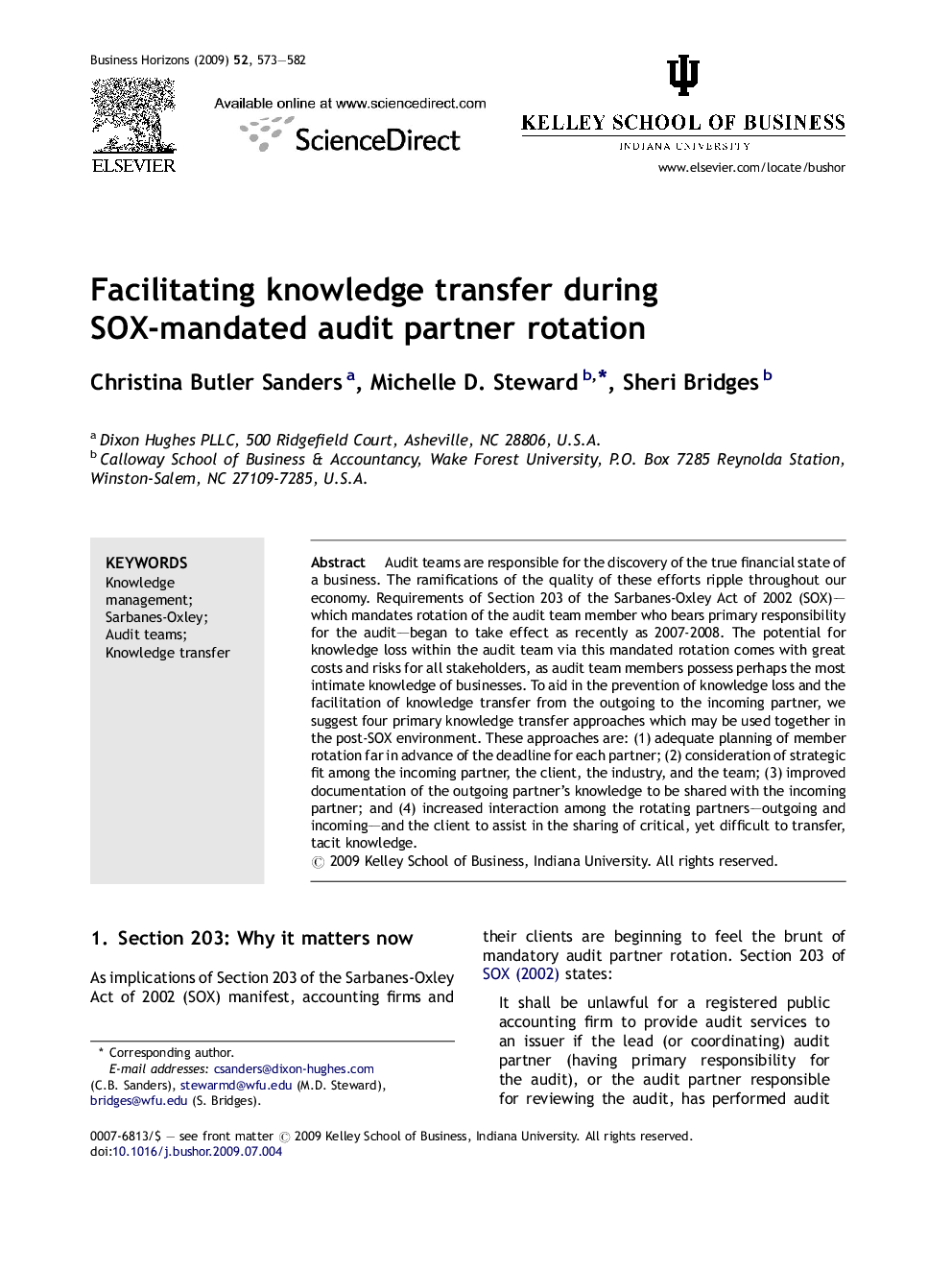| Article ID | Journal | Published Year | Pages | File Type |
|---|---|---|---|---|
| 1014468 | Business Horizons | 2009 | 10 Pages |
Audit teams are responsible for the discovery of the true financial state of a business. The ramifications of the quality of these efforts ripple throughout our economy. Requirements of Section 203 of the Sarbanes-Oxley Act of 2002 (SOX)—which mandates rotation of the audit team member who bears primary responsibility for the audit—began to take effect as recently as 2007-2008. The potential for knowledge loss within the audit team via this mandated rotation comes with great costs and risks for all stakeholders, as audit team members possess perhaps the most intimate knowledge of businesses. To aid in the prevention of knowledge loss and the facilitation of knowledge transfer from the outgoing to the incoming partner, we suggest four primary knowledge transfer approaches which may be used together in the post-SOX environment. These approaches are: (1) adequate planning of member rotation far in advance of the deadline for each partner; (2) consideration of strategic fit among the incoming partner, the client, the industry, and the team; (3) improved documentation of the outgoing partner's knowledge to be shared with the incoming partner; and (4) increased interaction among the rotating partners—outgoing and incoming—and the client to assist in the sharing of critical, yet difficult to transfer, tacit knowledge.
